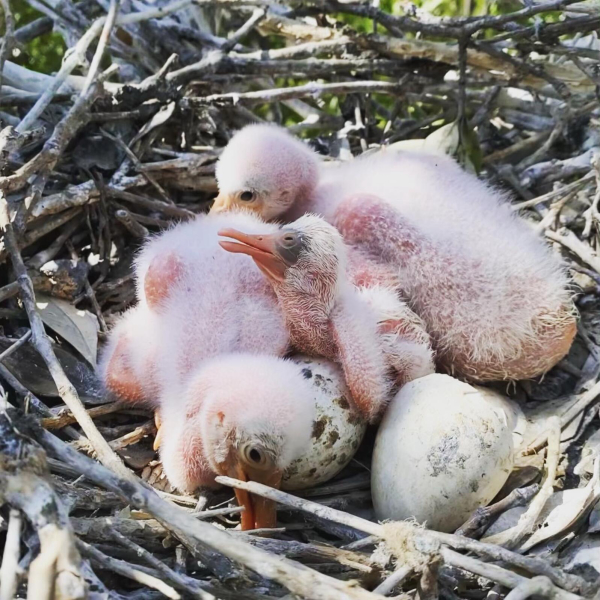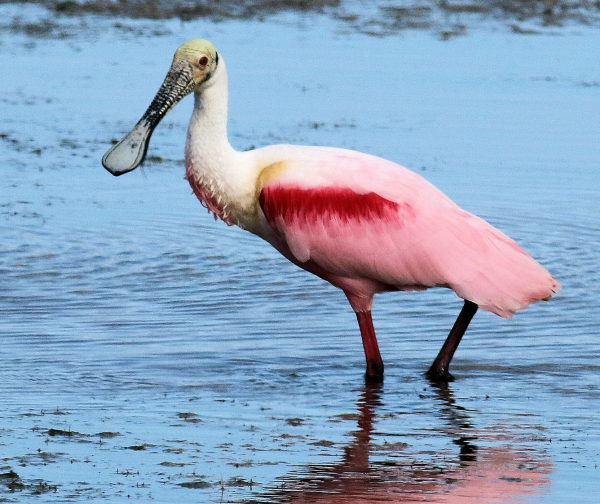
A newly hatched Roseate Spoonbill raises it head among 2 day old nest mates (photo by Casey King).

Roseate Spoonbills are an “indicator species” that reflect the quality of the Everglades environ (photo by Paul Konrad).
|
Each winter the Everglades Science Team conducts surveys of Roseate Spoonbills and other wading birds to gauge the health of south Florida populations. Boating up to a small key in Florida Bay, biologists surveyed the island to check for new spoonbill nests and revisit active nests. After recording the status of the nest and any occupants, they will return 10 to 12 days later to re-check nests. Audubon Florida is working throughout the state to protect the Everglades and the habitat the Roseate Spoonbills need to survive.
During each legislative session, the policy team pounds the pavement to secure funding for water basin restoration and conservation projects. Moreover, the field research conducted daily by Everglades Science Team biologists provides critical benchmarks of the success of restoration initiatives.
During a revealing interview with biologist Casey King, she revealed that she was “lucky enough to watch the nestling hatch,” referencing the smallest bird in the accompanying photo. “It was hatching while we were checking the nest; that nestling was only 20 to 30 minutes old! The others in the nest are about 2 days old.”
Roseate Spoonbills are considered to be “indicator species” for the Everglades ecosystem as a whole. If they do well, researchers know the Everglades are doing well. Unfortunately, rising sea level and fluctuating freshwater levels have made successful nesting more difficult for this iconic species. As a species, they are already moving north in search of better nesting and feeding territories.
While studying the young spoonbills is rewarding, surveying the nests requires a lot of hard work in difficult environs. “The work can be physically demanding,” King says, “There’s a ton of boating, paddling, slogging, and climbing trees.” But for King, the birds drive her efforts.
To refer to the original Audubon Florida article that describes this Everglades Science Team project see https://fl.audubon.org/news/everglades-science-center-team-conducts-baby-spoonbill-surveys